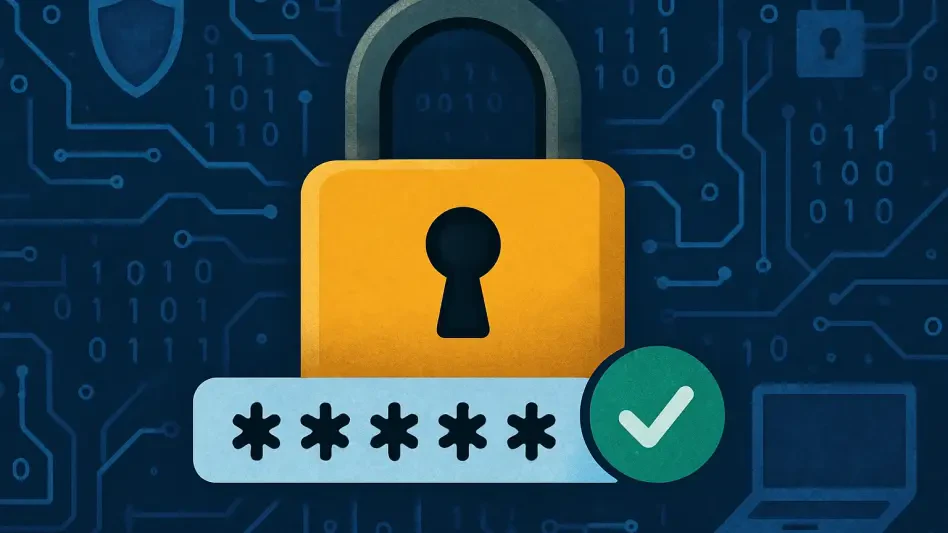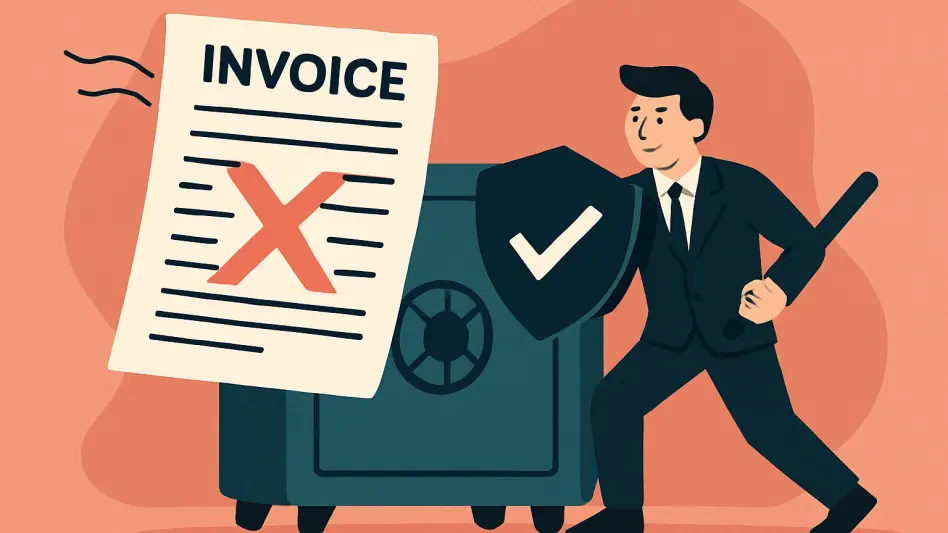In a world where financial transactions occur at the speed of a click, one might pause to consider: when was the last time a banking password was changed? Maybe last month, or perhaps not since the account was first opened. Surprisingly, an alarming majority of financial breaches continue to be attributed to something as simple yet significant as weak passwords. Financial institutions, which act as the custodians of people’s money and sensitive data, remain perilously vulnerable. Picture the implications of a single breached account leading to substantial financial loss, reputational damage, and systemic failures within organizations.
The Silent Saboteur of Financial Security
Across the financial sector, weak passwords persist as silent saboteurs. Data breaches often occur unnoticed as cybercriminals exploit easily guessable passwords. The prevalence of such security lapses highlights a significant oversight in an industry typically characterized by stringent regulations. Imagine the simplicity of credentials such as “password” or “123456,” which have been repeatedly implicated in costly data breaches. Despite technological advancements, the reliance on rudimentary password protection still exposes institutions to threats that can unravel elaborate security frameworks.
It is worth pondering the repercussions of these weak security practices as exemplified by notable breaches. A glaring example includes an incident where an employee’s rudimentary password compromised a fintech company’s extensive database, resulting in millions of dollars in losses and a dramatic erosion of customer trust. Such scenarios underline the critical need for continuously revisiting and upgrading password management protocols within financial entities.
Why Password Security Matters Now More Than Ever
In recent years, cyberattacks across the financial sector have surged in sophistication and frequency. As technology advances, so do the techniques employed by hackers, making financial institutions prime targets. The risk extends beyond mere financial theft; it threatens personal identities and can facilitate broad-scale financial fraud—all possible through one weak password.
For institutions and their clients, the stakes are incredibly high. As the financial sector grapples with protecting its digital infrastructure, the failure to address password vulnerabilities can lead to disastrous consequences. Individuals face the risk of identity theft that can dismantle lives, while organizations may encounter severe regulatory penalties, damage to reputation, and significant financial losses. Thus, the ripple effects of poor password security become undeniably prominent in the current digital age, amplifying concerns throughout the financial ecosystem.
Dissecting the Weakness: Patterns and Pitfalls
Within the realm of password management, several problematic patterns persist. Alarmingly, many users continue to favor easily recognizable password combinations. This commonality is not restricted to novices; experts within organizations also fall prey to these tempting conveniences. Patterns like “123456” or “password” remain shockingly prevalent despite numerous advisories and warnings.
Events in the recent past have underscored that many breaches stemmed from poor password protocols. In one notable case, a breach at a leading financial service was traced back to the use of default credentials in commercial software. Such lapses are not mere concerns of oversight but form a significant proof point highlighting organizational complacency.
Default and shared credentials represent a particularly insidious problem, offering a gateway for unauthorized access. What should serve as a reminder is that banks and financial institutions must move sharply away from default, easily compromised credentials and make diligent strides to enforce robust password management strategies.
Expert Insights: The Cost of Complacency
Renowned cybersecurity experts have long cautioned against overlooking the importance of robust password practices. Karolis Arbaciauskas has emphasized that the financial sector cannot afford complacency in this regard. Weak passwords can rapidly dissolve the trust upon which financial relationships are built, fundamentally shaking the foundation of financial stability and safety.
Research by NordPass and NordStellar further illuminates the vulnerabilities within financial systems. Their findings reveal ongoing threats that perpetuate due to neglect in password integrity. Companies, like one leading bank, suffered significant breaches due to compromised passwords, unbelievably simple and outdated. The costs of such oversight are not merely financial but extend to trust and regulatory compliance.
Organizations that have faced breaches due to poor password management serve as stark reminders of the costly repercussions of falling behind in an era dominated by digital transactions. These insights point to an urgent imperative for financial entities to prioritize strengthening their password protocols alongside other security measures.
Strengthening the Frontlines: Practical Strategies
Addressing these vulnerabilities requires a proactive approach. Crafting strong, unique passwords remains an essential starting point. Best practices dictate that passwords should be lengthy, complex, and regularly updated. Encouraging employees, particularly within the financial sector, to practice good password hygiene is crucial.
The adoption of tools like business-grade password managers can further enhance security by securely storing and managing passwords. Incorporating multi-factor authentication (MFA) offers an additional layer of security, significantly reducing the risk of unauthorized access.
Education initiatives targeted at financial sector employees can also play a pivotal role in ensuring password security. By fostering a culture of awareness and knowledge, institutions can fortify their first line of defense against cyberattacks. The battle against weak passwords is ongoing, but with diligence and innovation, financial institutions can substantially reduce potential threats.
Taking Action: A New Era of Password Security
As the discussion unfolds, the need for a paradigm shift in password security becomes apparent. Weak passwords are not a trivial issue but a persistent threat with extensive implications. In the future, financial institutions must proactively address password vulnerabilities through strategic initiatives, technological adoption, and robust employee education programs. The legacy of these undertakings promises not just greater security but a restoration of confidence within the financial systems, where trust is invaluable currency.








